Before I get into the nitty gritty of this post, I need to mention a few disclaimers. I am not an expert on West African cooking. I am ethnically Akan and only represent and very small part of the West African community. Secondly, I am Ghanaian and have being far more exposed to West African cultures that were once under British colonial rule; I am still actively learning about cultures found in previous French colonies and hope to do my best to also illuminate their food cultures. Now that is written out, lets get into today’s topic.
West Africa
To describe West African cuisine, it is important to first talk about the countries in West Africa. West Africa as a region includes 16 different countries Benin, Burkina Faso, Cape Verde, The Gambia, Senegal, Ghana, Guinea, Guinea-Bissau, Ivory Coast, Liberia, Mali, Mauritania, Niger, Nigeria, Sierra Leone and Togo. Within these 16 countries there are over 38 ethnicities, each with one or more tribes, the largest being the Hausa or Fulani that span across most of West Africa. I mention the differences of ethnicities and tribes rather than differences in countries because when it comes to cuisine the preparations, choices of ingredients, names of foods and history behind it boil down to the tribe. For example, the Akan ethnicity spans Ghana and Ivory Coast, with many tribes included in this group. Now with arbitrary borders and acceptance that different tribes and ethnicities have been placed in these borders, cuisines in these countries take on the identity of the multiple tribes found within their borders. Country may also play into effect if one tribe is divided between a previous British Colony and previous French colony as some names of dishes may either have a french or english tone to them.

What influences West African Cuisine
The West African food culture is plant based friendly because of the indigenous ingredients found in this area and how previous generations approached how they cooked food they found. Like any other food culture, food cultures in West Africa were born out of what was available in the land and also what was exchanged through colonialism and trade.
Looking at the entire region, you will find tropical rainforest in the south, or around the coast, and dry Savanah inland/ in the Sahel region. Because of the similar climate across countries, you find similarities in Indigenous produce. I am finding that as I do more research on the food culture of different countries and ethnicities, there is a lot of overlap in ingredients and cooking methods.
To expand on the aspects of colonialism and trade, there has been a lot of introduction of food into West Africa via extensive trade routes and colonial interaction for centuries. Prior to European encounter, trade routes spanned the entirety of Sahara and Sahel regions where goods such as salt, dates and certain metals were exchanged for gold and slaves. Some of these trade routes expanded to East Africa allowing exchange of goods as far as with people from India and China and facilitated the movement of crops like plantain, cocoyam (taro) and water yam. Likewise, interaction with the Europeans and the slave trade brought important ingredients like tomatoes, chilis, corn and yucca/cassava from the Americas. All of these have shaped the various cuisines in West Africa.
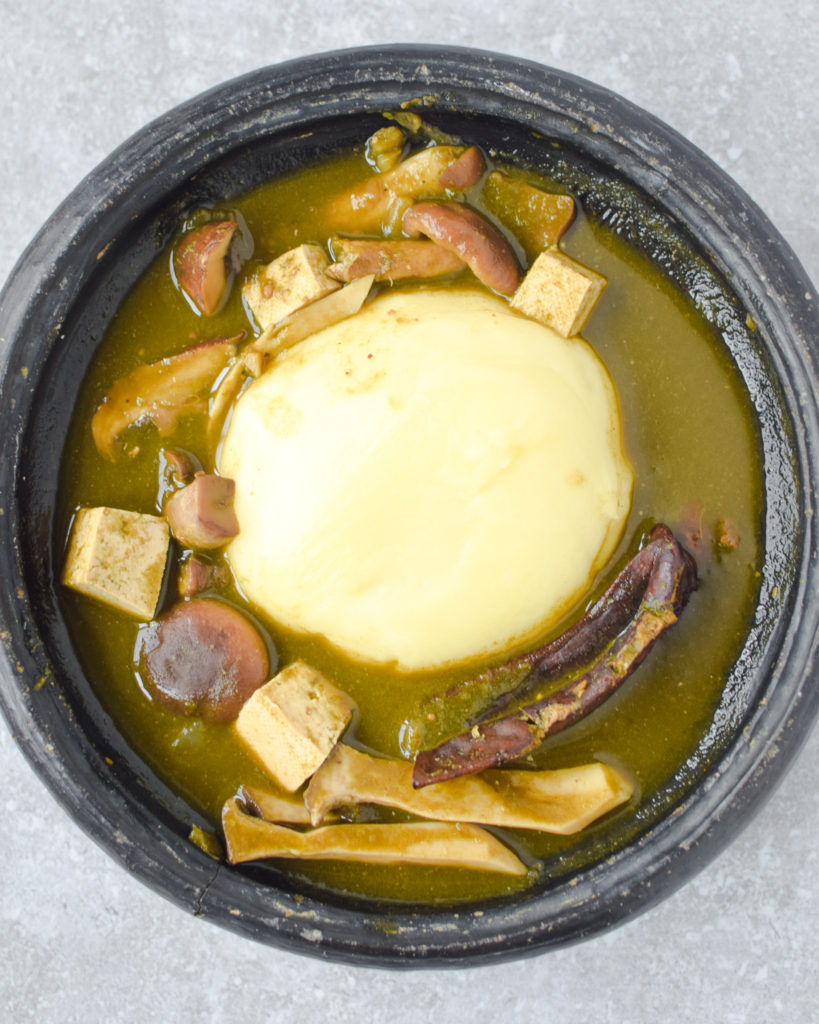
What is West African cuisine today?
If I am to describe West African food cultures as a whole to someone unfamiliar with it I will mention the following. Food cultures in West Africa place emphasis on slowly cooked dishes that develop complex flavours. A lot of our foods take a long time to cook and can be technically challenging if not well explained. There is a lot of use of tomato, spices both indigenous and imported, and aromatics like ginger to create flavourful stews and thick soups or rice based dishes. There are a variety of greens, herbs and leaves included in these stews: some popular ones are jute mallow leaves, baobab leaves, cassava and cocoyam leaves. Many of these stews are accompanied with a starchy ball or swallow made from cassava, plantains, corn, and West African yams (not sweet potatoes) which are key carbohydrates in many West African food cultures. Aside from these, there are a number of indigenous grains such as sorghum, fonio and millet that are also used for swallows or porridges. Diary is not a big part of many original west African food cultures, and are gaining some popularity. Beans and peanuts are integral legumes in West African food cultures and are found in a lot of soups, stews and side dishes. Legumes such as the cowpea/black eye peas and certain groundnuts are indigenous to West Africa and are the stars of a lot of stews. Our oils of choice are peanut, shea butter oil, and the red palm nut oil, which are all indigenous to West Africa. After describing this, you can now see how important trade and colonialism has been on shaping current food cultures across West African. A lot of these food cultures were exported by those unlawfully enslaved to South America, the Caribbean and North America where you might see a lot of similarity in their current diet. I am not going to lie to you and say meats and fish were never a part of foods across West Africa, many fished, (a lot of recipes call for salted and fish in small quantities that can easily be substituted out) reared goats and hunted, but animal based proteins were not as consumed as close to the extent that they are now.
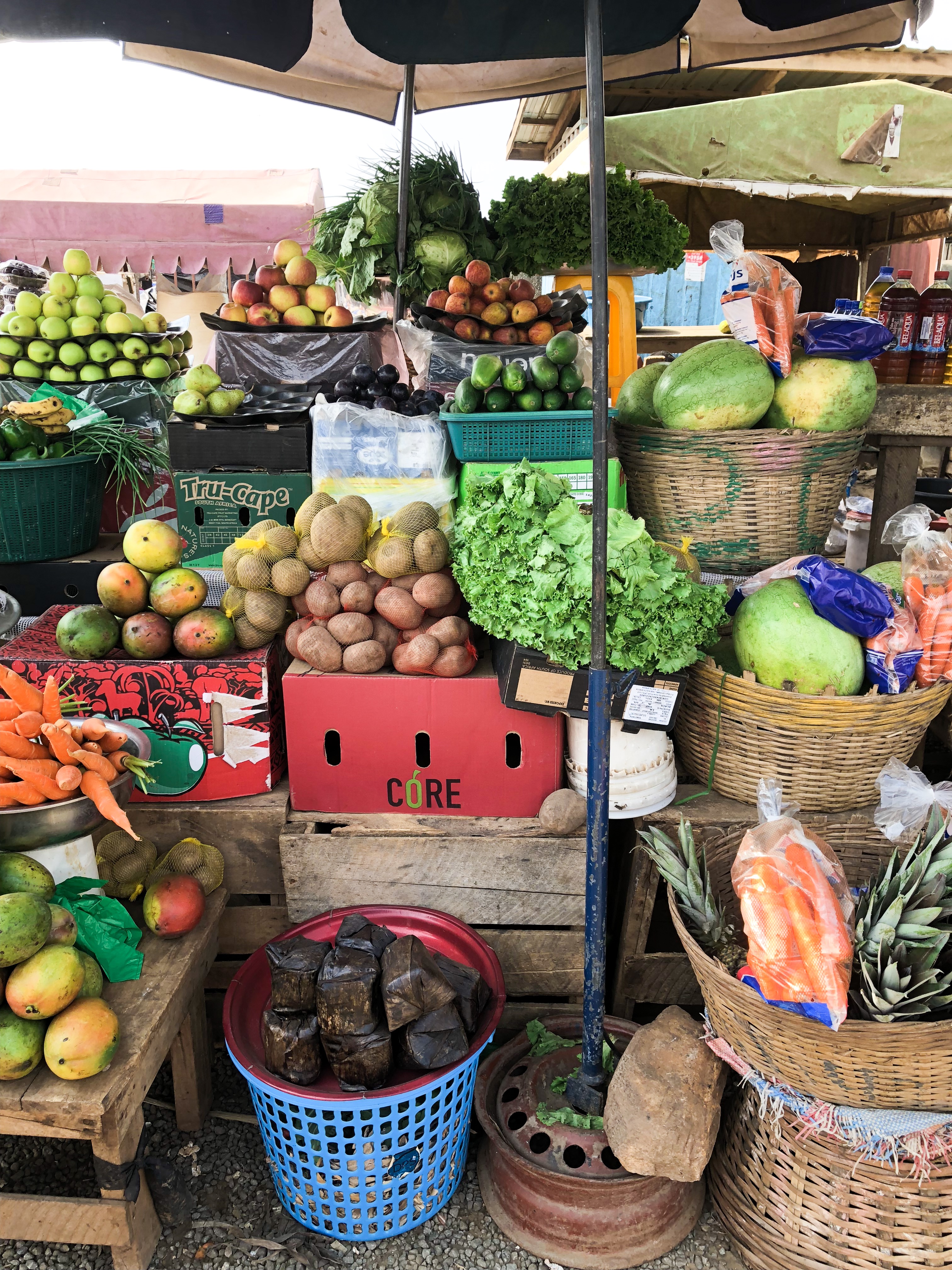
Vegetables available at the Market 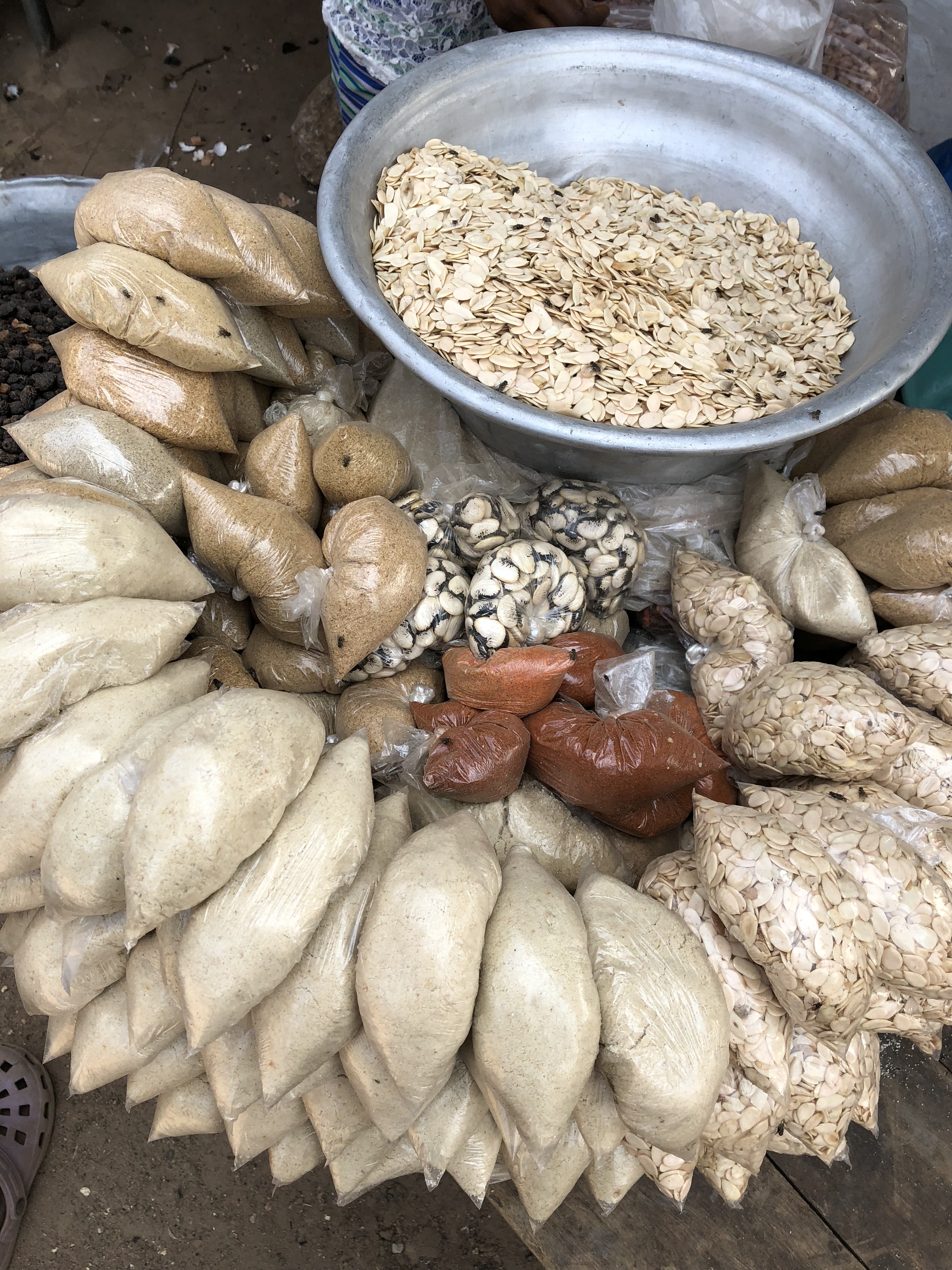
Melon Seeds whole and ground, pepper and castor seeds 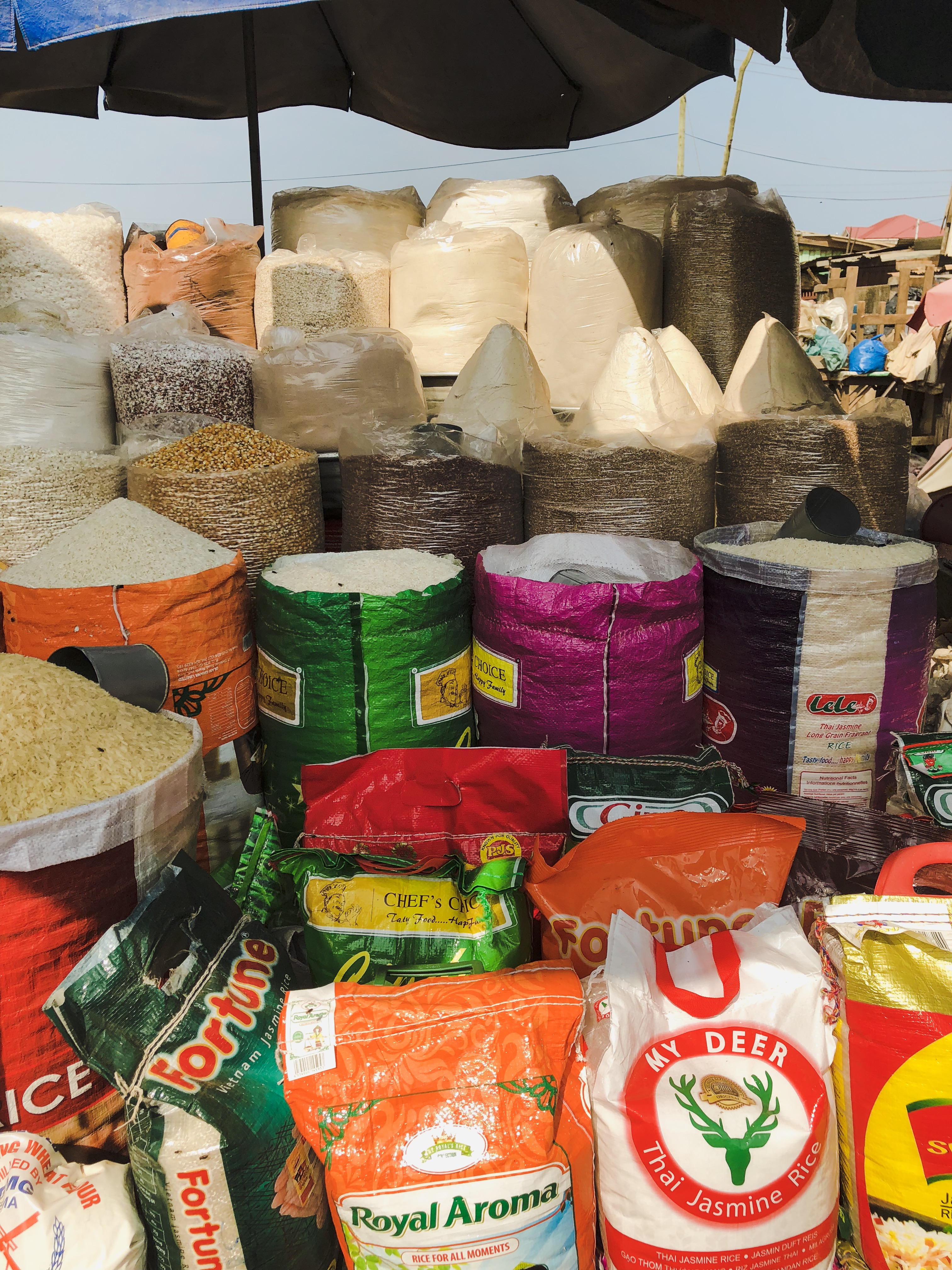
Grains Available at the Market
How exactly is West African food Plant Based friendly?
Indigenous legumes tend to be the star of a lot of dishes. A lot of breakfast foods are some kind of grain or corn porridge with a bean fritter, usually made from black eye peas or bambara beans. In Nigeria there is ogi and akara, or akara eaten with agege bread and gari (milled dried cassava). Akara is known as ata in Benin and akala or kose in Ghana. In Ghana, we eat fermented porridge made from millet with the kose, in Mali, they also have a millet porridge called degue coco. In Benin there is a porridge called sorou koko that is made with corn. I know in Togo and Benin there are popular tapioca porridges that people have with milk and peanuts. So if you are vegan, know that you will definitely find breakfast to eat
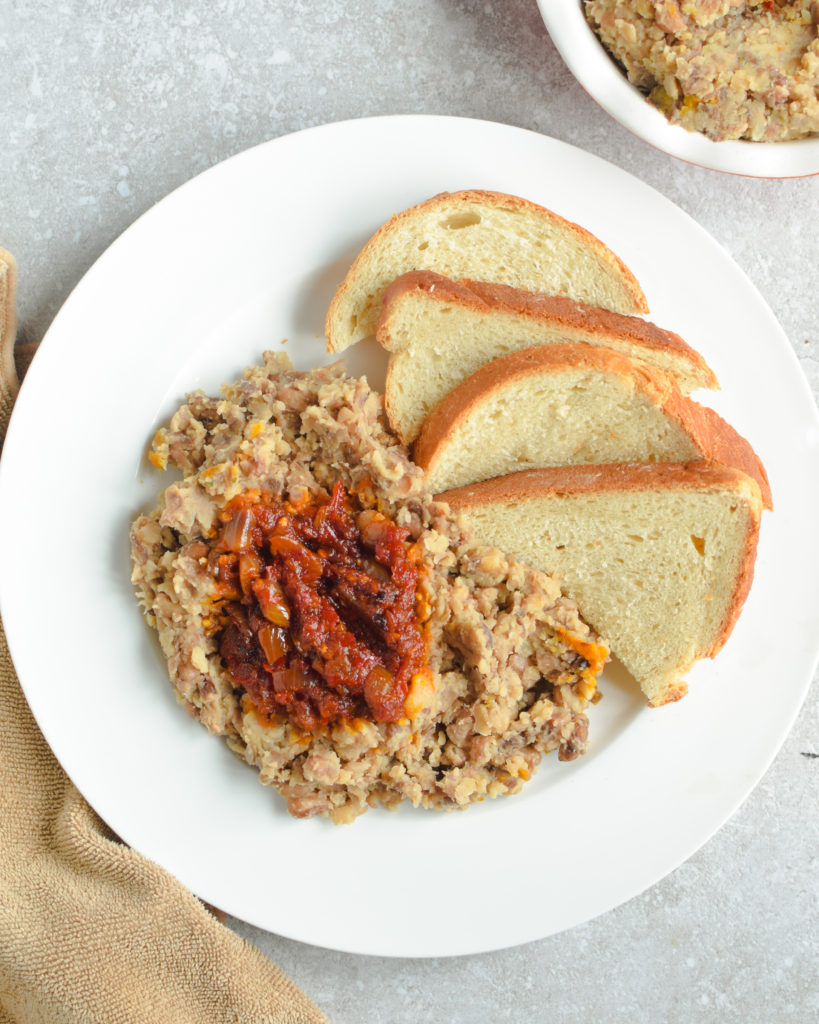
Ew Agoyin 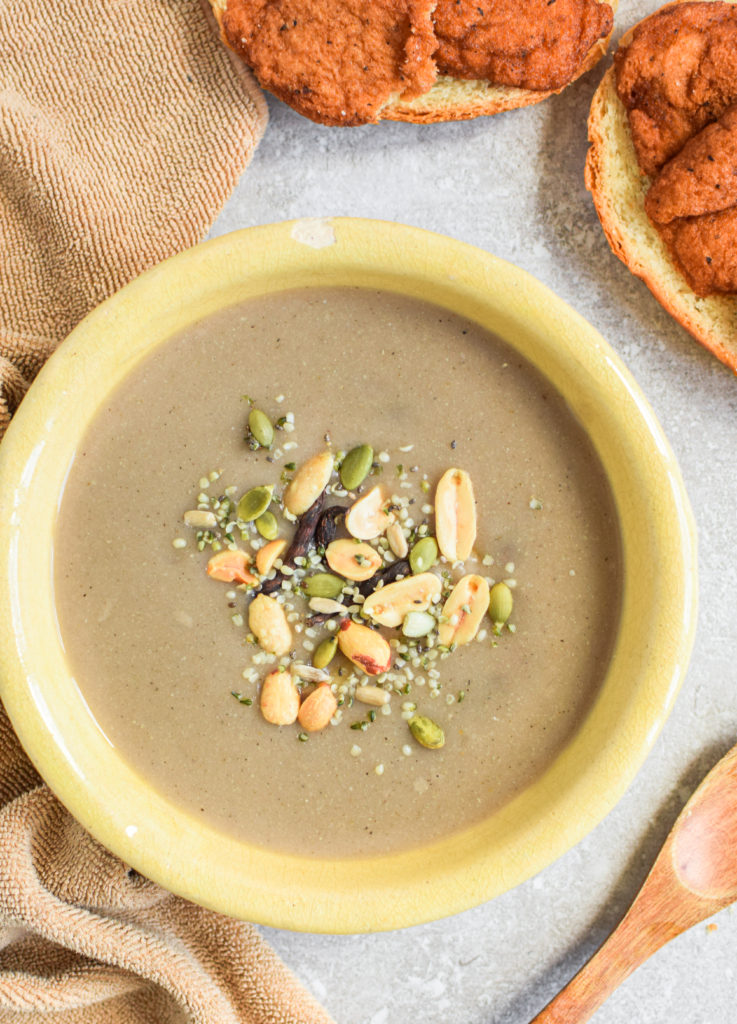
Hausa Koko
Meals beyond breakfast may get trickier. A lot of the times, foods like jollof rice/thieboudienne/benachin/riz au gras, which West Africans are known for, are made with animal based stock or fish, although they can easily be made vegan if you have more control over the cooking process, whether you know the cook or are making it yourself. However there are a number of options that are accidentally vegan. In Ghana we have red red (beans cooked with palm oil served with fried plantains) or bambara beans with plantain fritter. This combination is available in other countries. I know Nigerians eat plantain and beans and so do Ivorians. Some people just cook plain beans and eat it with cassava like in Gambia.
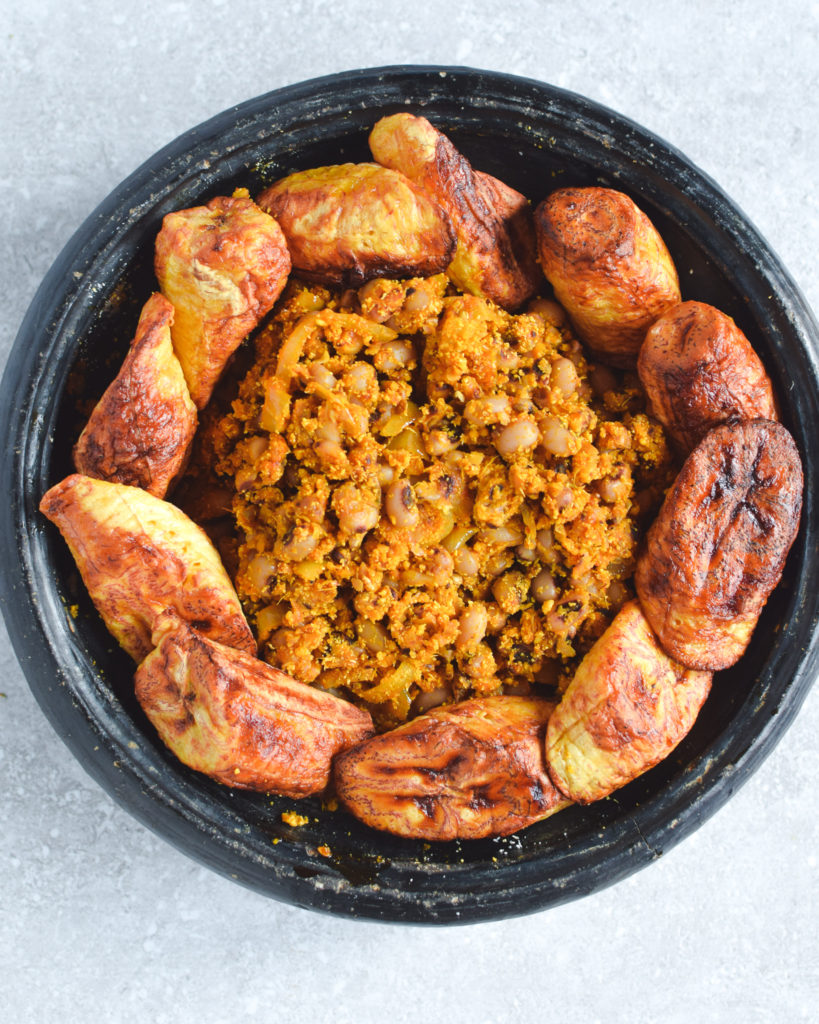
Red Red from Ghana 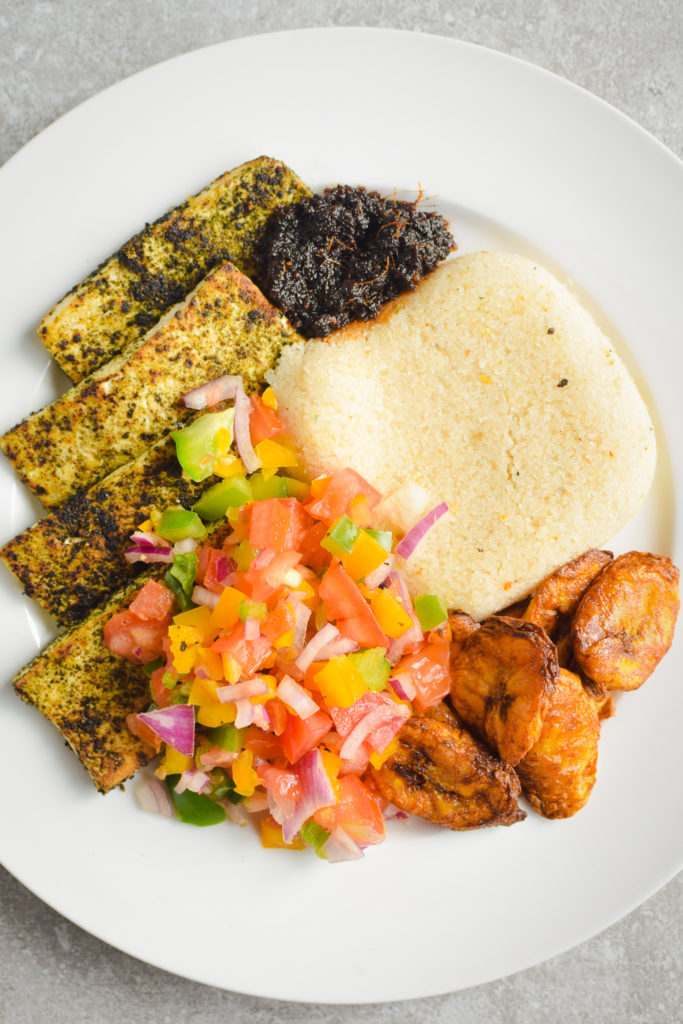
Attieke with To-Fish and Alloco from Ivory Coast 
Yassa Tofu from Senegal
In Ghana, we also have waakye, which is rice and beans cooked in sorghum leaves. You can find this exact recipe in Togo as ayimolou; Gambia has something very similar called nyebbah ress. There are a lot of vegetable based stews like egusi soup (Nigerian melon seed stew), potato leaf stews in Sierra Leone, maffé (peanut based stew from Senegambia/Guinea/Mali/Sierra Leone), abomu (mashed greens with palm oil in Ghana) that can be made without the assortment of meats. Amala in Nigeria and tuo zaafi or tô in Burkina Faso do not require meat to make the red sauce as a pungent flavouring called dawa dawa/iru/locust beans is used for the greens to gives a nice umami flavour that is like meat but not really. Then we have dokonou or kenkey in Togo and Ghana that are served with red pepper sauce and fish; the fish can be easily omitted.

Abomu with Yam and Plantain 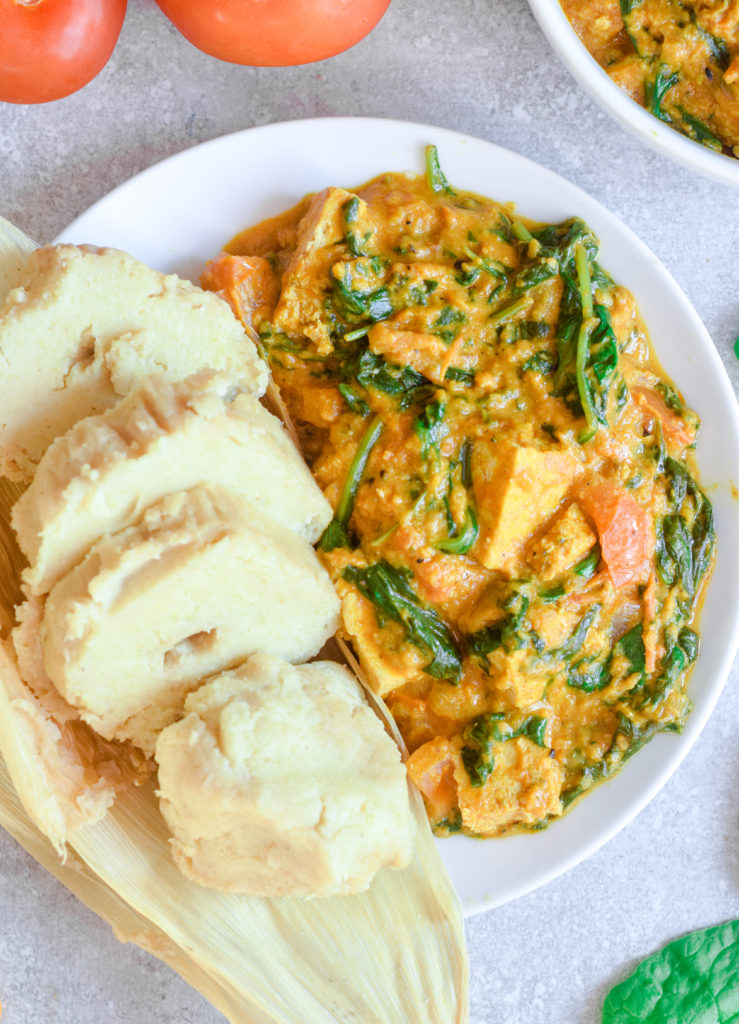
Kenkey/Dokonou
Snacks on the other hand are quite vegan friendly, roasted and fried plantains, yucca and yams are available on the side of the street in many countries, sold with peanuts. There are bean cakes like moin moin and tubaani available across different countries you can enjoy. There is masa or ablo, which are rice cakes that are easily vegan and in Ghana, we have something called adaakwa, which is a spicy peanut ball that is completely vegan. There are fried doughs across West Africa that require no eggs or milk like puff puff, yovo doco, bofrot, beignets. Sometimes, you can also get roasted and steamed corn available and obviously there is an abundance of fruits available to enjoy.
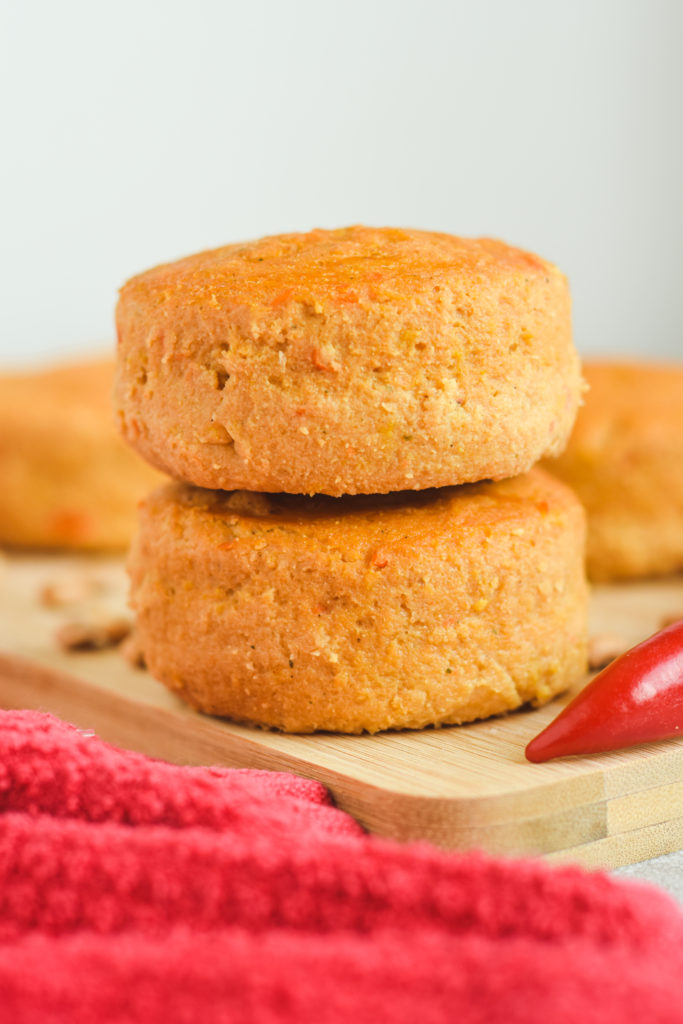
Moin Moin 
Puff Puff
I know this is a very cursary insight into West African cooking, with a lot of foods you might not have heard off. I highly suggest typing all the dishes in google images and looking at the dishes. Also cuisines from certain countries like Niger are quite difficult to find while other countries like Ghana, Senegal, Gambia and Nigeria have way more information about their foods available on the internet. Nevertheless, everything I mentioned describes interesting and fascinating recipes. The goal is to slowly work through some of these recipes and share those that I master along the way. Please leave any questions you might have and I will try my hardest to answer them.

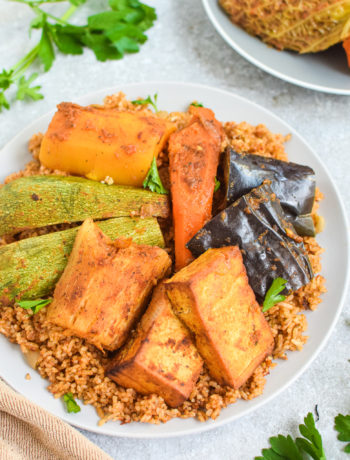
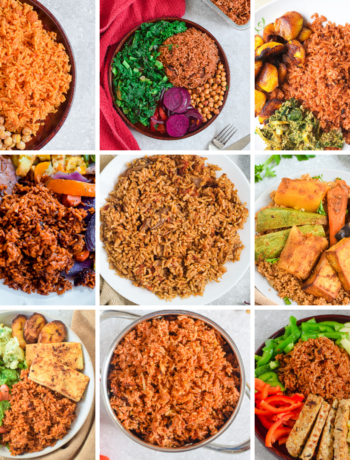
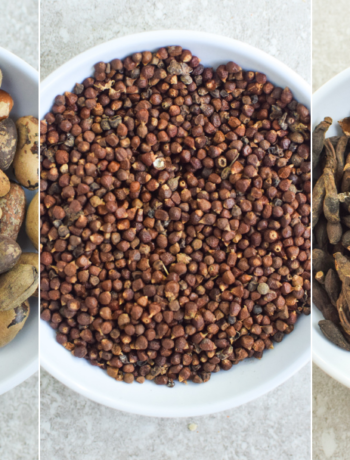
9 Comments
Victoria
July 5, 2020 at 8:07 pmI love your blog and your instagram! Just wanted to let you know 🙂
Eunice
July 7, 2020 at 4:23 pmAwesome
MB
July 13, 2020 at 11:56 amNice I’m originally from Guinea. Thank you for all you do.
Victoria Mensah
July 22, 2020 at 4:12 pmGreat job on your research into West African Food Culture. 👍🏽
Jeannette E Hutchinson
July 23, 2020 at 1:24 amThank u. A great educator you are. I am a Vegetarian. I definitely enjoy west african foodies. Its hard to find foods that don’t use crayfish when i go out to eat. Since i don’t eat fish, chicken, goat, beef. Egusi Soup is my fav. Okra soup. Most dishes i just give the meats to my friend and dip my Amala or pounded yam to enjoy the flavors. I enjoy Nigerian foods most, but i am not bias to try others. ✊🏾🙏🏽😁🍲🍛
Marena
August 10, 2020 at 1:18 amThis post is so amazing! Super interesting and informative to me, as an American vegan. I have not heard of any of these dishes but I am definitely interested in trying them!
Fermented Spicy Teff Porridge - The Canadian African
December 13, 2020 at 8:07 pm[…] it’s fellow West Africans. I touch a little bit on this in my West African food guide (Click Here) Growing up foods like Hausa Koko were a quintessential breakfast item. Every time I went to Ghana […]
Frequently Asked Questions - The Canadian African
November 7, 2021 at 4:57 pm[…] I also have a blog post talking about how plant-based friendly West African cuisine is, you can check it out for more information on the region as a whole (click here) […]
Food Pan Restaurant
December 29, 2023 at 4:43 amLove This blog